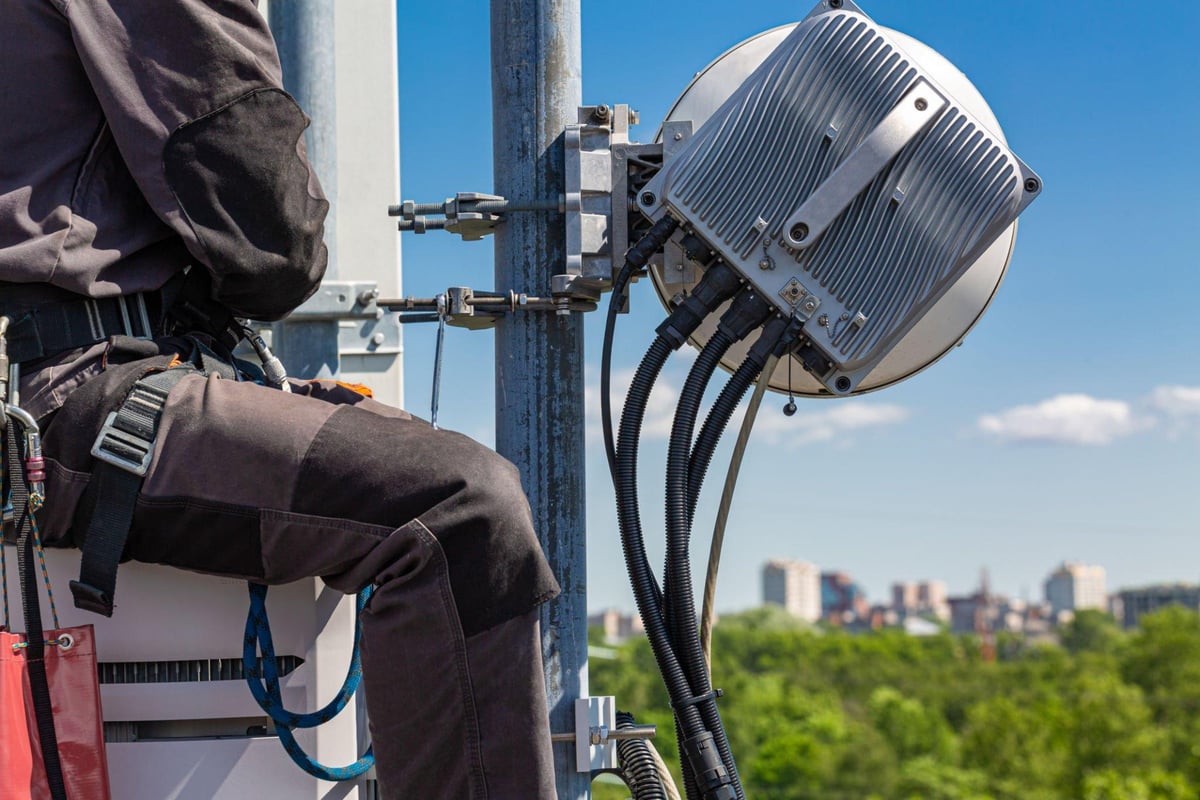
No cost info

Financial aid (may be available)

Financial aid (may be available)

Financial aid (may be available)
As the world grows more connected, the demand for skilled telecommunications professionals, such as Tower Technicians, continues to rise. Finding the right vocational training can be a challenge, but platforms like Dreambound are making it easier for students to locate the perfect class. This blog post aims to guide prospective students in Pittsburgh in finding the best Tower Technician classes available.

A Tower Technician, also known as a Tower Climber, is a professional who maintains and repairs cellular, broadcast, and telecommunications towers. These technicians often work at significant heights, performing tasks such as installing or replacing antennas, troubleshooting signal issues, and ensuring the structural integrity of the towers.
The training requirements for a Tower Technician position can vary. However, most employers prefer candidates with a high school diploma or equivalent. Additionally, prospective technicians should expect to undergo on-the-job training, and potentially complete formal education programs or apprenticeships.
For those interested in formal education, vocational training programs can offer comprehensive instruction in areas such as:
Basic telecommunications concepts
Safety protocols and standards
Equipment installation and maintenance
Emergency procedures
When choosing a Tower Technician class, it's essential to consider the following factors:
The course curriculum: Ideally, the course should cover both theoretical and practical aspects of the job.
The instructors' qualifications: Experienced instructors can provide valuable insights and practical knowledge.
Hands-on training: Practical exercises can help students gain the skills they need for the job.
Recommendations: Look for programs with positive reviews and testimonials.
Similar to other vocational training programs, a Tower Technician class typically combines classroom instruction with hands-on training. Students can expect to learn about safety procedures, equipment installation and maintenance, and telecommunications technology, among other topics.
The certification process for Tower Technicians varies. Some employers may require specific certifications, such as the Tower Climbing Safety and Rescue (TCSR) certification. Vocational training programs often prepare students for these certifications by covering relevant topics and providing the necessary practical experience.
Once you've completed your training and earned necessary certifications, you can start looking for Tower Technician jobs. Online job boards, networking events, and recruitment agencies can be useful resources in your job search. You might also find opportunities for advancement or specialization in your field, such as becoming a Lead Tower Technician or a Field Operations Manager.
After becoming a Tower Technician, you might consider continuing your education to broaden your knowledge and skills. Some related classes you might consider include:
Advanced safety training
Equipment-specific training
Supervisory or management training
Pennsylvania offers a wealth of vocational training opportunities in various fields. For instance, you might consider becoming a HVAC Technician, a Truck Driver, or a Dialysis Technician. These careers offer different challenges and rewards, and they all start with the right vocational training program.
In the ever-evolving field of telecommunications, staying up-to-date with the latest techniques, equipment, and safety standards is crucial. Continuous learning can help you stay competitive in the job market and provide better services to your employers and clients.
Technical skills are crucial in this line of work, but so are soft skills. Qualities like good communication, problem-solving, and teamwork can make a significant difference in your success as a Tower Technician.
Networking can open doors to job opportunities and help you learn from others in your field. Consider joining professional organizations, attending industry events, and connecting with fellow Tower Technicians.
Becoming a Tower Technician requires a combination of formal education, on-the-job training, and continuous learning. With the right vocational training program, you can gain the skills and knowledge you need to succeed in this challenging and rewarding field. Platforms like Dreambound make it easier for students in Pittsburgh to find the Tower Tech classes that suit their needs and career goals. By taking the first step towards vocational training, you're paving the way for a bright future in the telecommunications industry.
Dreambound has an extensive collection of guides that dive deep into how to get started in the field, tailored for various cities. For those based in different locations or planning to move, we recommend exploring our other guides.
If you're exploring various professional paths, Dreambound has in-depth guides to help assist you. Explore a few of these resources below.
Dreambound's platform allows prospective students to find the right educational program for them through searching, filtering, and connecting with our extensive selection of career & technical education partners.
Dreambound has over 70 programs across healthcare, technology, business, and industrial trades. This includes programs such as Medical Billing, Cybersecurity, and welding.
Some of our schools offer financial aid for those who qualify. Many others offer payment plans, where you can pay the cost of class over time.
Yes, Dreambound offers many online programs. On Dreambound's search, you can filter by online, in-person, and hybrid (part online, part in-person).
Dreambound is completely free for you to use! We are supported by schools and organizations who pay to advertise on our website, so we can offer all of our career resources for free.